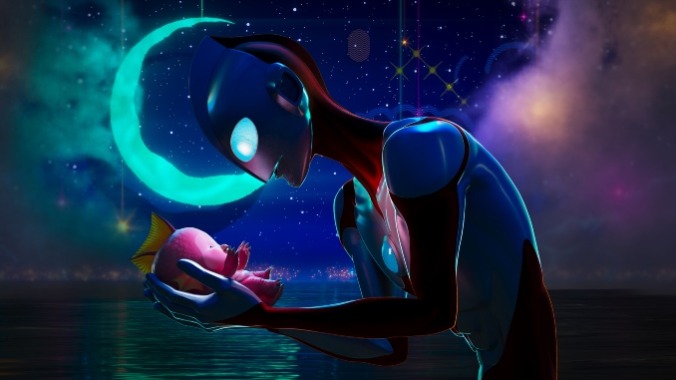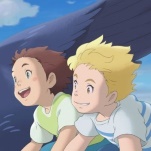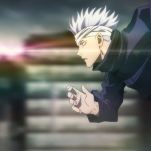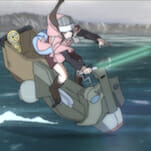Ultraman: Rising Is an Ode to the Heroics of Parenthood

Of the many colorful characters conceived after the Godzilla-inspired tokusatsu boom, few loom as large as Ultraman, a superhero who grows to gargantuan proportions to protect Japan from supersized monsters. The big guy was so beloved that he helped usher in the Kyodai Hero subgenre, which is all about do-gooders who transform into giants so they can battle hulking creatures. Following a barrage of TV series that carries on to this day, word of the character’s exploits eventually went global, resulting in a worldwide fanbase that eagerly awaits the numerous shows, movies and videogames about this savior from the Land of Light. Ultraman: Rising, a new film from Netflix Animation, is the latest installment in this storied franchise, and unlike many other entries in the series, it feels tailor-made for newcomers. Through its colorful cuts of animation and superpowered antics, it’s a family-friendly film that hones in on the greatest battle of all: parenting.
The story follows Ken Sato (Christopher Sean), a legendary baseball player who moves back home to Japan at the prompting of his estranged father, Professor Sato (Gedde Watanabe). It turns out that his pops is Ultraman, and after getting injured on the job, he asks his son to take up the family business. Ken isn’t thrilled at the prospect, and he’s in the middle of balancing his life as a ballplayer and superhero when things get even more complicated. After a fight between a giant winged lizard and the anti-monster wing of the military goes sideways, Ken finds himself the parent to a 30-foot-tall baby kaiju.
If it wasn’t clear, this isn’t a “traditional” Ultraman narrative, in that it’s not about fighting a bunch of big bads from outer space. Instead, Ultraman: Rising is largely dedicated to the perils of raising a kid as a single parent, a concern that is doubly stressful here because the Kaiju Defense Force, led by the vengeful Dr. Onda (Keone Young), is hellbent on kidnapping Ken’s adopted child so they can use her to find the creature’s rumored homeland and destroy all the monsters for good.
This childrearing angle is one that’s handled with a lot of heart, and Shannon Tindle and Marc Haimes’ screenplay gets at both the joys and pitfalls of parenting by delving into the stress that comes from juggling a million different problems while also ensuring your baby doesn’t shoot a laser beam through a nearby skyscraper (okay, maybe this one is specific to Ken’s case). Although there’ve been plenty of stories about overwhelmed single dads getting owned by babies, the monster movie twist here leads to more than a few great gags as the film also gets at the type of sentimental beats you would expect despite the somewhat outlandish premise of raising a massive bird-lizard child.
And beyond the adorable hijinks, these new circumstances help Ken grow as a person while also forcing him to address lingering issues with his loved ones. The story gets at the pressures he and his father faced as Ultraman, a responsibility that created a schism in their household and led to unresolved resentments. Family is the thematic throughline here, even when it comes to Dr. Oda, whose villain origin moment links back to a kaiju-related incident that put him on the warpath. From him, we can see how an otherwise positive motivator — caring for loved ones — can push people to extremes.
-

-

-

-

-

-

-

-

-

-

-

-

-

-

-

-

-

-

-

-

-

-

-

-

-

-

-

-

-

-

-

-

-

-

-

-

-

-

-

-








































